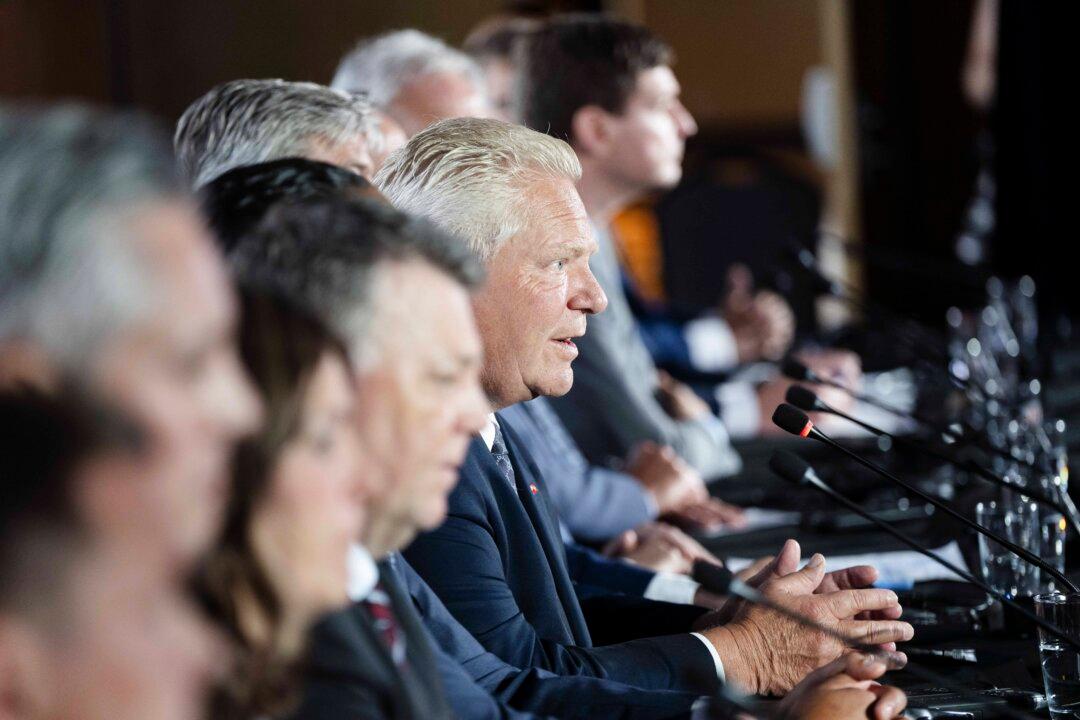Ontario Premier Doug Ford says the federal government and some premiers have prepared a list of retaliatory tariffs in response to U.S. tariff threats. The proposal will be discussed at a meeting with Prime Minister Justin Trudeau in Ottawa on Jan. 15.
Ford made the remarks after a meeting of the premiers on Jan. 8, where they discussed how to respond to the looming tariff threats from U.S. President-elect Donald Trump, who is set to take office on Jan. 20. Ford said his province has a “strong list” of retaliatory tariffs and that other premiers and Ottawa also had lists of their own, but said he would not reveal details to avoid “showing our cards” to the United States.





